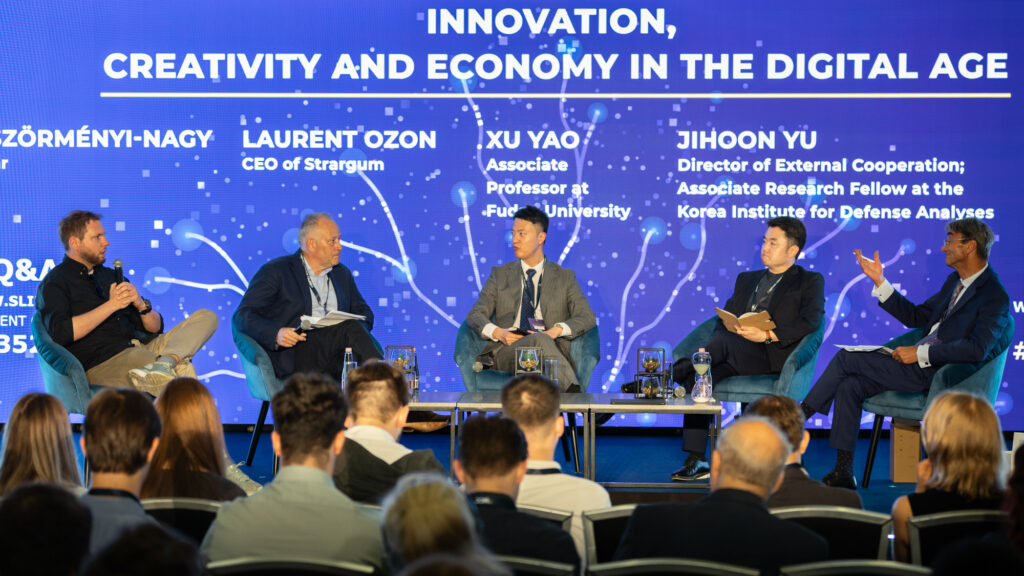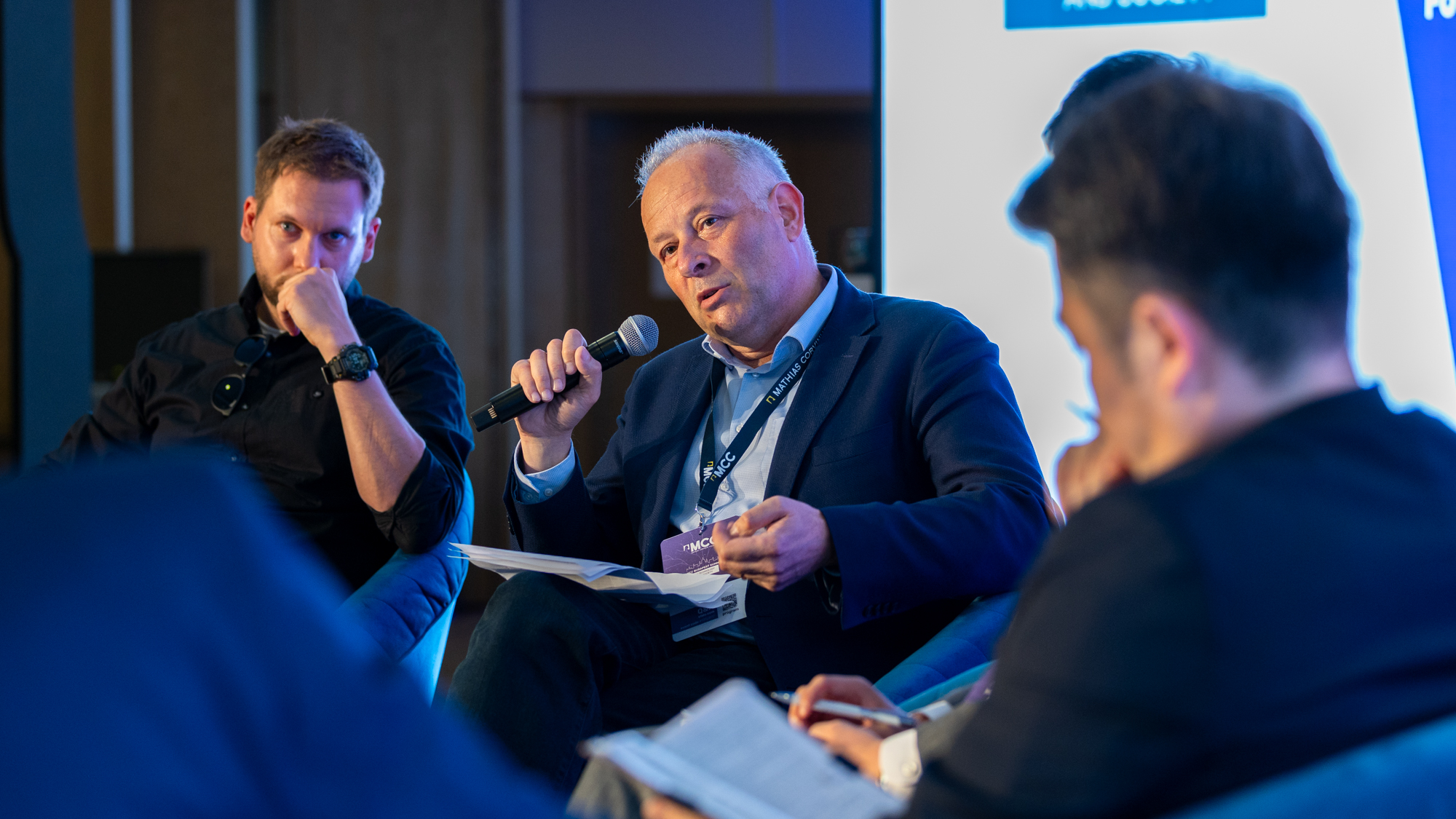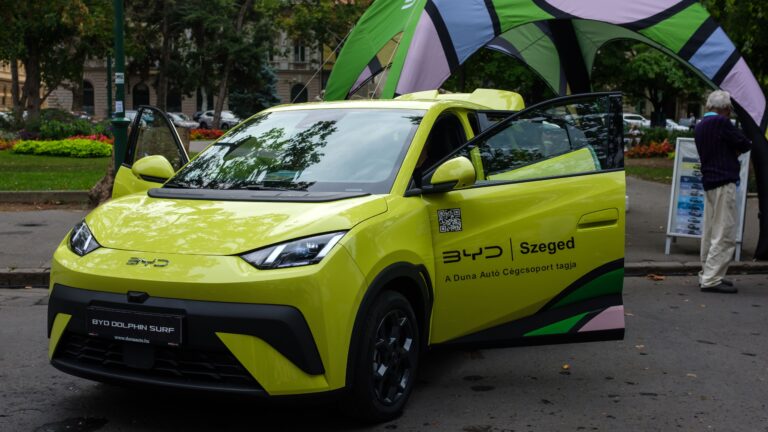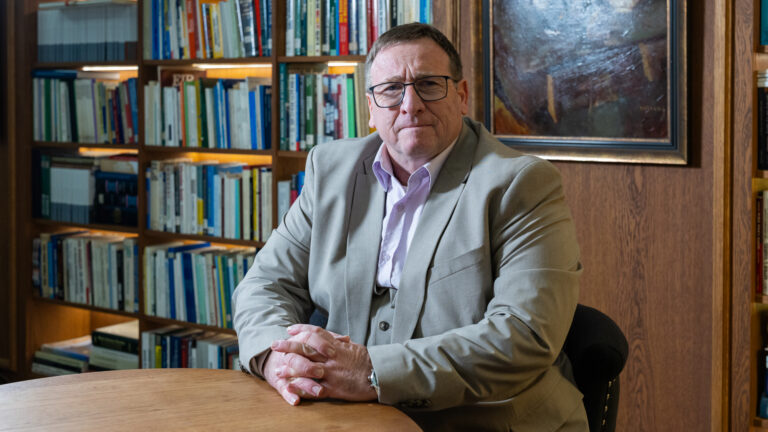During the MCC Budapest Summit on Technology and Society, Hungarian Conservative sat down with former military firefighter Laurent Ozon, the founder and director of some of France’s most innovative companies (Storvision SAS) specializing in control technologies (video surveillance, image analysis HMI, process control).
[Special thanks to Leonardo Orlando for helping us overcome the language barriers during the interview.]
***
Could you summarize your thoughts on how algorithmic intelligence will impact society—whether over the next 10–20 years, or even more immediately?
It depends on what aspect we’re looking at. If we’re talking about productivity or employment, there are already reports projecting the impact of algorithmic technologies. For instance, in France, some estimates predict a loss of around four million jobs within the next decade.
But these reports mostly focus on economic productivity. They rarely consider the social or political consequences. And that’s a major issue, because those impacts are just as important.
We’re caught between two opposing injunctions. On one hand, we’re told that we must adapt—because if we don’t, we’ll be left behind. On the other, we’re told that embracing these changes will itself destroy us. Those with the power to shape these transitions are enforcing one direction, while those without power are being dragged along, often unwillingly.
There’s no real analysis of what direction is actually needed. It’s like a football match—two sides pushing, but no shared vision.
I understand you’ve worked with complex data systems. In that context, how do you evaluate institutional preparedness for unpredictable events—so-called ‘black swan’ scenarios?
What’s often called a ‘black swan’ is, in fact, already happening. These events aren’t just technological or scientific—they’re also political and anthropological. When people don’t see the underlying processes, the outcomes appear as surprises. But they’re not. They are predictable consequences of long-term dynamics.
For example, a poll of researchers in artificial intelligence showed that 7 per cent believed the development of AI could lead to the marginalization, obsolescence, or even the elimination of humanity. That’s not science fiction—it’s a real belief held by people working on these systems.
What we are witnessing is a process I call dés-hominisation—a kind of ‘dehumanization’. We are delegating the management of dysfunctional societies to machines. Instead of fixing the root problems, we’re using technology to administer them more ‘efficiently’.
Historically, societies regulated cooperation through proximity, reputation, cultural rituals, and interpersonal bonds. These were transmitted through culture and solidified by biological and ethnocultural communities.
Now, we are dismantling that model. We’re replacing it with something cold and external: abstract systems, laws, and algorithms. The Enlightenment gave us the belief that culture could be replaced by reason and universal knowledge. But that assumption is now collapsing under the weight of its own consequences.
Do you think that tension—between algorithmic systems and human society—could eventually become a real confrontation?
Yes. It’s comparable to the Butlerian Jihad in Frank Herbert’s Dune—a revolt against machines. We might be heading into a similar conflict, not necessarily violent, but a deep civilizational crisis between human life and algorithmic control.

The response shouldn’t be to reject science or embrace some romantic idea of the past. We need new disciplines and paradigms—perhaps rooted in fields like bacteriology, ecology, or mycology. These sciences challenge the Enlightenment’s emphasis on individualism and linear progress. They suggest more interconnected, dynamic models.
That brings me to your experience in military and emergency response. Do you think those skills—quick, decisive action—are useful in managing this technological shift?
Only if we take a parallel route—one that challenges algorithmic control. We can’t confront this with outdated attitudes or denial. We need a disciplined, scientific approach that allows us to imagine and build societies in which we’d actually want to live.
Science must not just serve the imperative of endless growth or machine augmentation. It should help us reduce our dependence on machines, not increase it. The new paradigms I mentioned must support that goal.
You also work in the field of surveillance technologies, particularly video surveillance. In your opinion, what are the ethical limits of such surveillance, especially now that it relies on AI?
Video surveillance eliminates human error by outsourcing decision-making to algorithms. But this creates a new problem. The more we rely on surveillance, the more people change their behaviour under the watchful eye of cameras, not out of conformity or a need to preserve their reputation or social life, nor out of a sense of ethics, but out of fear. As a result, behaviours do not disappear; they simply migrate to areas without cameras. You are not solving problems, you are simply shifting them.
Because there is no lasting internal control of behaviour, but rather temporary self-censorship through fear, surveillance acts like a virus. Humans shift their antisocial behaviour, and the algorithmic response thus justifies its expansion. It spreads like a virus to every corner of society to track the movement of antisocial behaviour. It is a runaway process with no limits. Shared culture, social responsibility and reputation are infinitely more effective in ensuring quality of life and social control. To put it simply: more identity and migration anarchy means more algorithmic control.
Final question—slightly off-topic. Space exploration is advancing rapidly. Do you believe it will reshape geopolitical power, like new ‘territories’ on Mars?
The myth of human space exploration—pushed by Americans, Russians, and others—is largely symbolic. The real exploration will be done by machines or post-human entities. Humans as we are today won’t survive the distances and timescales involved.
For the next two centuries, it will be machines that travel, not us. After that, maybe some kind of hybrid or mutant form of humanity. But we shouldn’t delude ourselves that this is a romantic, human venture. It’s technological colonization—nothing more.
More from the event:







